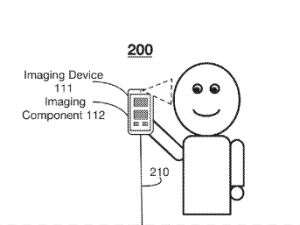Sonos, the current popular brand of smart speaker that people don’t [yet] talk to, really wants its customers to agree to the company’s new privacy policy; so much so, that failing to acknowledge the new rules can turn your Sonos speakers into very expensive shelf decorations when they eventually “cease to function.” [More]
Data & Privacy
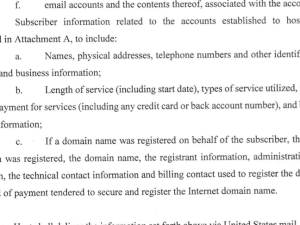
Justice Dept. Decides It No Longer Wants Info On 1.3 Million Visitors To Anti-Trump Site
The U.S. Department of Justice recently tried to compel a website hosting company to turn over all the information the company has on the approximately 1.3 million internet users who visited a site created to organize a protest during President Trump’s inauguration. Now the DOJ is rethinking that plan, withdrawing its demand for this mountain of data. [More]

Spyware Found In Over 500 Android Apps, Together Downloaded More Than 100M Times
Official storefronts that sell apps — Google Play and Apple’s App Store — do their best to make sure everything they’re distributing to you isn’t going to wreck your phone or steal your data. But one vulnerability in code used in hundreds of Android apps has allowed malicious actors to change what your app does after you download and install it, and the problem has affected millions. [More]
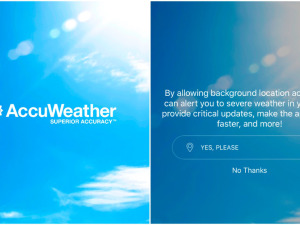
If You Don’t Want AccuWeather Sharing Your Location Even When You’re Not Using It, Update Your App Now
We’ve all been there: You download a new app to your phone or tablet and are asked to share your location data — even when you’re not using the service. In most cases, you can say no and go about your day knowing that the app isn’t following your every move. But that’s apparently not the case with AccuWeather, as security researchers say the app is accessing users’ location data even when they turn off location services. [More]

Why You Should Care About This Lawsuit Against A Data Company You’ve Probably Never Heard Of
The legal system has long taken a “no harm, no foul” approach to certain legal disputes: If you haven’t actually been injured by the other party’s actions, you’ll have a hard time convincing the court that your lawsuit shouldn’t be thrown out. But the internet, where incorrect information can be disseminated globally within seconds (and may never truly be erased), is causing courts to reconsider the question: When can you sue a company for an intangible harm? [More]

DOJ Demands Company Turn Over Info On 1.3 Million Visitors To Anti-Trump Website
Since most of us aren’t looking at websites via a Tor connection, we’re leaving digital footprints all over the place. The sites you visit may have a surprising amount of information on you, even if you’re not logged in, and even if you went to that site inadvertently. That’s why the Justice Department is trying to compel a web-hosting company to turn over everything it knows about anyone who ever clicked on a site that is critical of President Trump. It’s also why that company is fighting against this demand. [More]

Uber Settles Federal Allegations It Deceived Customers About Privacy & Data Security
Uber has reached a deal with the Federal Trade Commission to settle the government’s investigation into the ride-hailing service’s allegedly questionable privacy practices.
[More]
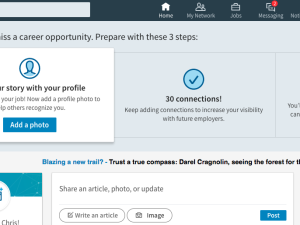
LinkedIn Can’t Block Third-Party Scanning Of Public Profiles To Identify Employees Most Likely To Leave
LinkedIn is trying to stop a third-party analytics firm from scanning publicly available profiles on the networking site with the purpose of identifying employees most likely to jump ship to a competitor. But a federal judge has granted an injunction against LinkedIn, saying the company appears to be misinterpreting the law in a way that “could profoundly impact open access to the Internet.” [More]
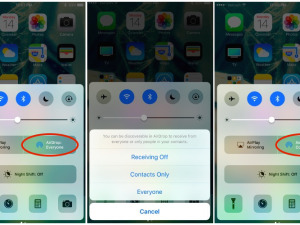
Check Your AirDrop Settings If You Don’t Want To Receive Pics Of Strangers’ Genitals
The iPhone’s AirDrop functionality is convenient, allowing users to quickly transfer files between devices. At the same time, a small number of perverts and pranksters are apparently taking advantage of AirDrop to share photos of their “junk” with complete strangers.
[More]

Facebook Now Helps Advertisers Target People Who Visited Their Real-World Stores
Most of us are no longer surprised to see that our online ads are sometimes directly related to websites we’ve recently visited. An even more invasive practice would be for you to go online and be bombarded with ads for a bricks-and-mortar store you just shopped at. Nevertheless, Facebook is now letting online advertisers target users based on their offline movements. [More]

Man Who Suggested Complicated, Always Changing Passwords Now Has Regrets
We all know that it’s not a great idea to use an easy-to-guess password such as “123456,” although plenty of people do that. Instead, we’re often told to use complicated strings of words, numbers, and special characters to protect our online personas, as they were thought to be more difficult to guess — and sometimes to remember. Now, though, the man who kicked off the involved password era says maybe he wasn’t right after all. [More]

Hacker Claims To Be Holding HBO Data For Ransom
The saga around a recent hack attack at HBO just keeps getting deeper. Now, hackers that claim to have a whole lot of unreleased programming and potentially embarrassing internal documentation are saying they might not release it… if HBO pays them big bucks to stay quiet. [More]

Can You Sue Your Insurance Company Over A Data Breach If Your Info Hasn’t Been Used By ID Thieves?
With data breaches now a daily occurrence for businesses large and small, there’s a good chance that at least some of your information has been compromised by cybercriminals at some point. But should you be able to sue a company for failing to keep your data safe when the stolen information hasn’t (yet) been misused? [More]

Your “Anonymous” Web Browsing History Totally Isn’t
You might think you’re pretty good at making sure you don’t share your internet life with the entire world. You use Facebook’s strictest privacy settings, don’t share anything sensitive on Twitter, and you regularly trash your laptop’s browsing history. All good, right? Nope. All that “anonymized” data you leave behind out in the ether is still totally you, and it’s far easier than you think to make it paint your picture and yours alone. [More]

Google’s Tracking Of Offline Spending Sparks Call For Federal Investigation
Google recently announced a suite of new tools for advertisers, allowing them to link a customer’s offline credit card purchases with the things they look at online. Shockingly, some privacy advocates think this sort of tracking goes too far and have called on the federal government to investigate. [More]

FTC Awards $25,000 Prize To App Designed To Make Your Stuff’s Security Suck Less
Your stuff may be increasingly “smart,” but the security on it almost certainly isn’t. If something of yours connects to the internet, it can be hacked — leaving your private data vulnerable, and potentially sweeping your stuff into an international criminal botnet. Now, the FTC is awarding a cash prize to a developer who’s designed an app to hopefully help you make your stuff more secure. [More]

Wells Fargo Accidentally Handed Over A Bunch Of Confidential Info On Its Rich Clients
After having a heckuva time dealing with backlash over its recent fake accounts fiasco, Wells Fargo has another debacle on its hands: A new report says a lawyer for the bank accidentally released a whole lot of confidential information about tens of thousands of its richest clients. [More]



